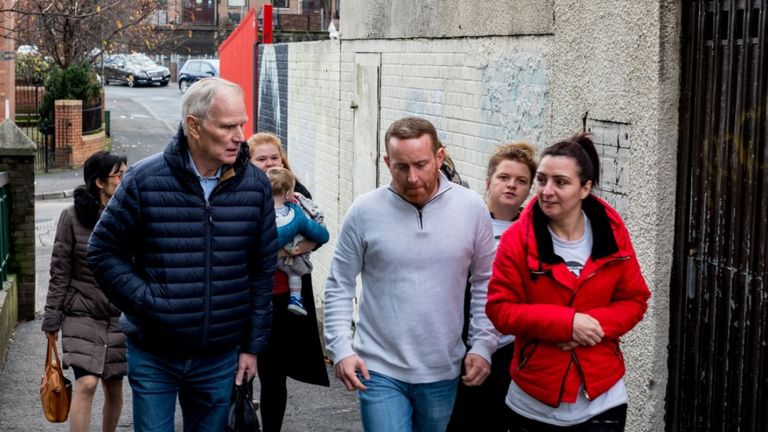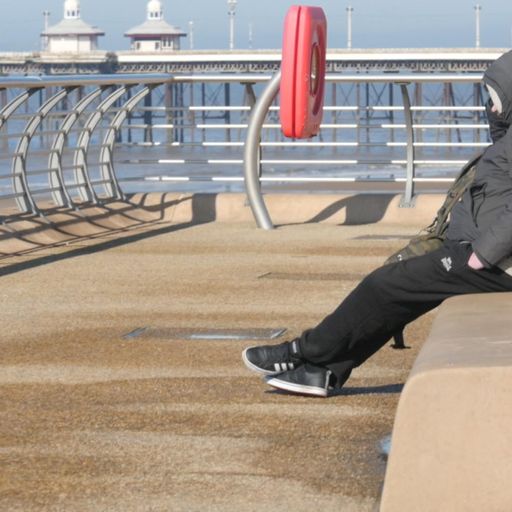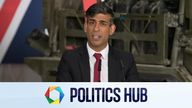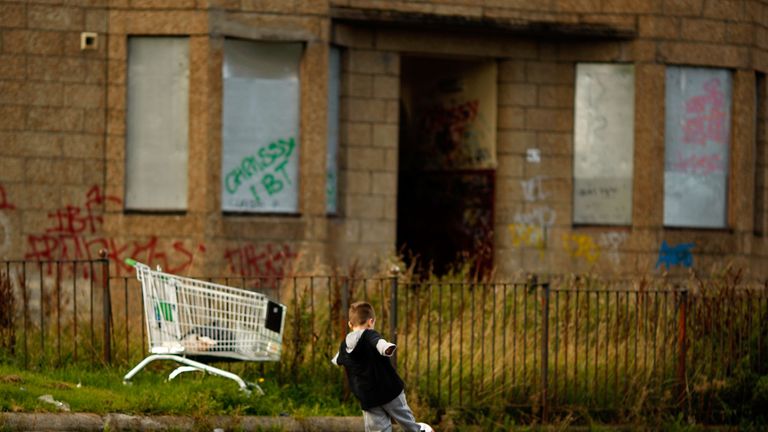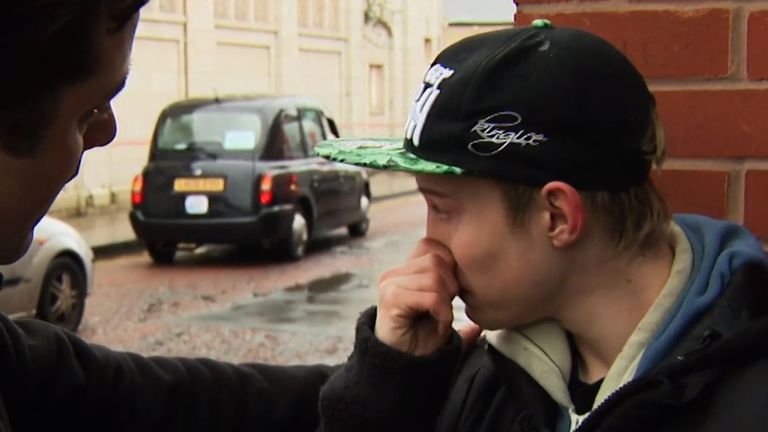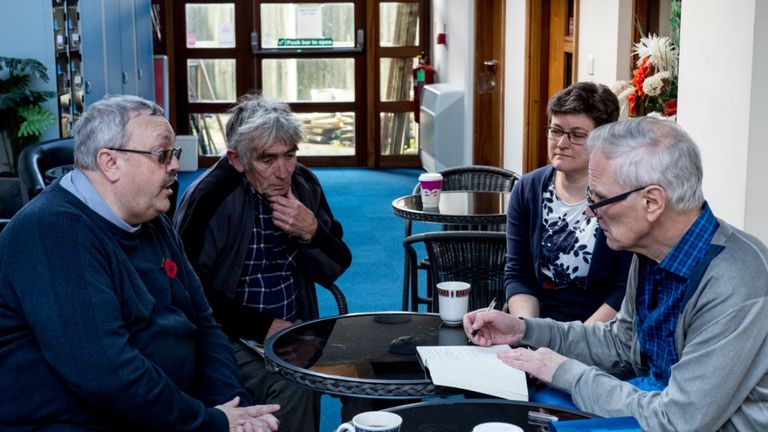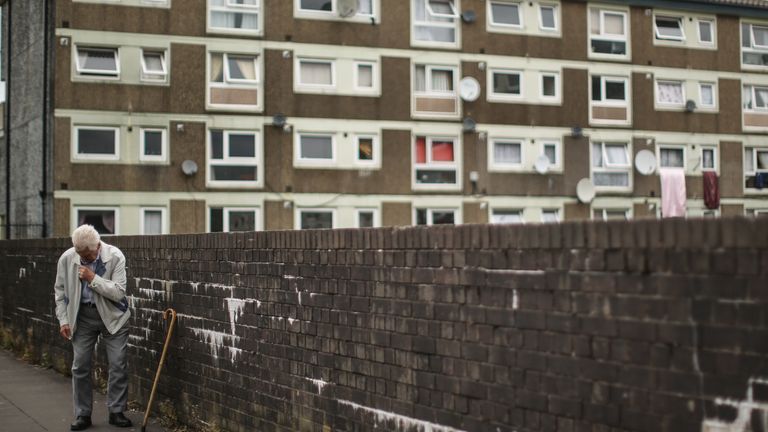UK government cuts 'causing unnecessary misery to millions', UN warns
One-fifth of the UK population are now said to be in poverty due to "callous" spending policies that hit the poorest the hardest.
Friday 16 November 2018 21:43, UK
The government has been accused inflicting "unnecessary misery" upon millions of people in the UK as part of a damning assessment of poverty levels in the country by the United Nations.
At the end of a 12-day tour of Britain, Philip Alston - the UN's special rapporteur for extreme poverty - accused ministers of being "in denial" about deprivation in the UK.
He said "drastic" spending cuts had created a chasm between rich and poor and a "staggering" level of child poverty.
Austerity measures including cuts to local authority budgets and the roll-out of universal credit, among other measures, have an "ideological motive" and were turning Britain into an "alienated" society with huge differences between rich and poor, Mr Alston said.
Accusing successive governments of a "systematic dismantling of the social safety net", he said cuts sought to make the benefits system "as unwelcoming as possible" and to communicate that "the state does not have your back any longer".
There are some 14 million UK citizens living in relative poverty, of which more than one million are considered destitute - unable to afford even the basic essentials - despite Britain being one of the richest countries in the world.
Mr Alston warned that the situation would only be made worse by Brexit, and that the impact leaving the EU would have on the most vulnerable in society was "not being considered as it should be" by government agencies.
He said that although local services were dealing with an increased burden of people struggling with universal credit and benefits cuts, ministers seemed to be "getting the message but not heeding it".
The department for work and pensions said it "completely disagreed" with Mr Alston's analysis.
"With this government's changes, household incomes have never been higher, income inequality has fallen, the number of children living in workless households is at a record low and there are now one million fewer people living in absolute poverty compared with 2010," a spokesperson said.
"We are absolutely committed to helping people improve their lives while providing the right support for those who need it."
Charities, academic institutions, individuals and community organisations, as well as ministers and opposition politicians, contributed to the UN's report.
Louisa McGeehan, policy officer from Child Poverty Action Group, said the causes of poverty were "structural, not individual".
"It’s very much a wake-up call," she told Sky News.
"Child poverty isn’t just a problem in other parts of the world - it’s here in the UK."
Ms McGeehan said she regularly spoke to teachers who said children were coming into school "grey" with malnutrition, and doctors who could not discharge children from hospital because their homes were not fit to live in.
"We know parents go huge lengths to hide their poverty from their kids, going without, even not eating, so their children can," she said.
"They think the children don’t notice, but they do."
Mr Alston said in the course of his investigation he had spoken to people forced to sell sex in order to survive, who depend on food banks for their next meal and who had been sleeping on friend's couches for months.
He said the impact of austerity on women was acute, thanks in part to the disproportionate affect of cuts on single parents and the implications of per-household universal credit payments on domestic abuse victims.
"If you'd got a group of misogynists in a room and said, guys, how do we get a situation that is going to work for us and not for women, they wouldn't have changed much from what's already in place," he said.
The special rapporteur said the findings - including a 60% rise in homelessness and a "rapidly multiplying" number of food banks - spelled "a social calamity and an economic disaster" for more than just marginalised groups.
He told Sky News that the middle classes and those on higher incomes may have been benefiting from tax cuts - but that they too would be affected by the hollowing out of communities and increased hostility caused by cuts.
"It's based on a totally mechanic economic analysis that ignores the damage being done to the fabric of British communities," he said.
